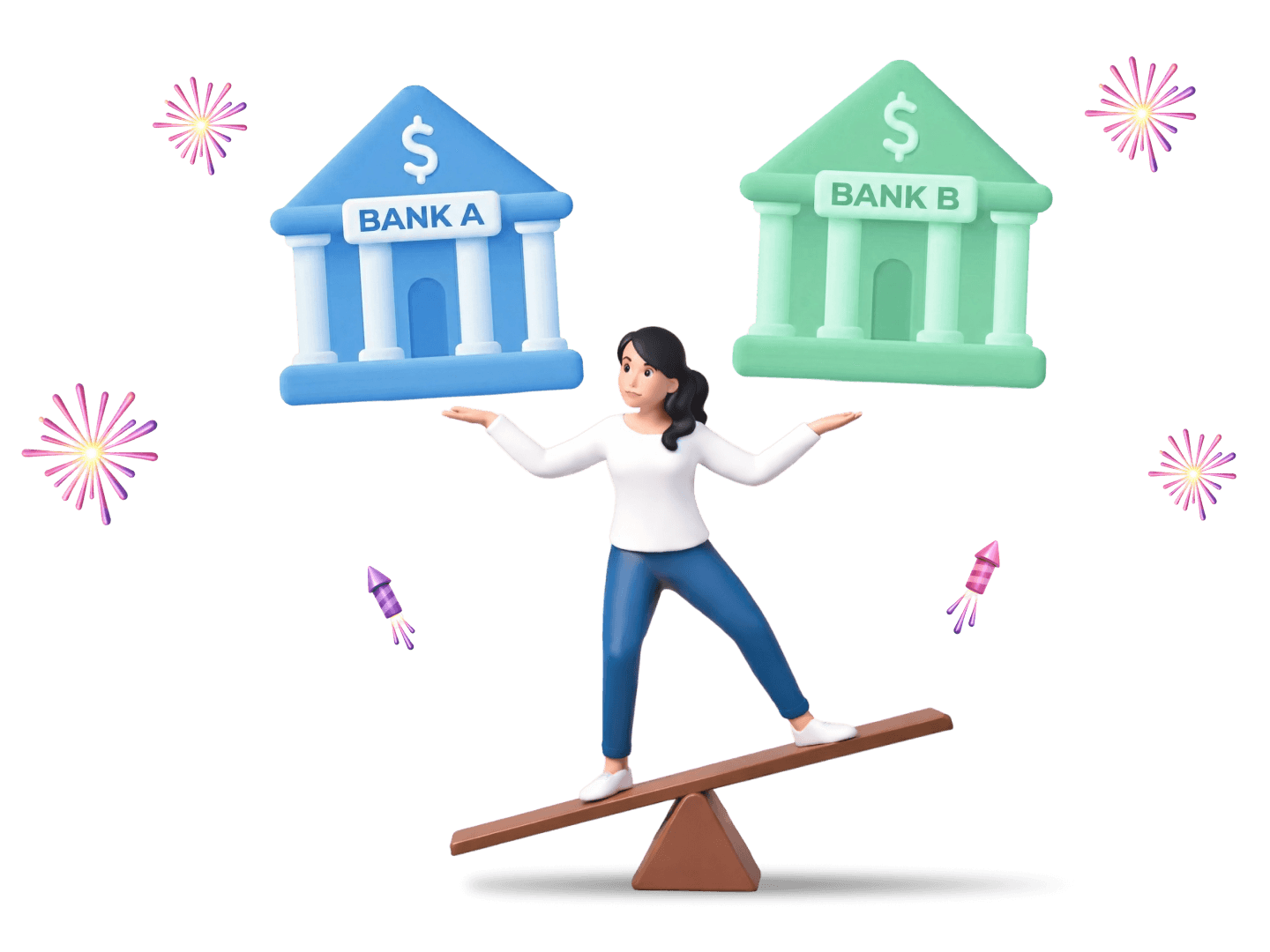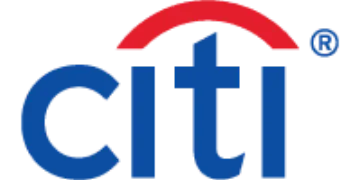What Is Debt Consolidation and How Does It Work?
Updated: 17 Dec 2025
Debt consolidation lets you take all of your unsecured debt, such as personal loans and credit card bills and pay them off with a single loan. It can also help you reduce interest rates, streamline payments, which in turn aids in managing repayment.
Established by the Association of Banks in Singapore (ABS) in 2017, Debt Consolidation Plans (DCP) are one of the most common types of debt consolidation in Singapore. Eligible Singaporeans and Permanent Residents can choose to combine their unsecured debts at their favoured financial institution.
The bank loans them a sum of money, which they use to pay off all outstanding debts. While some look to the bank of their choice for a Debt Consolidation Plan to help repay their debts, others who are struggling to pay off debts may opt for personal loans or loans from licensed moneylenders instead.
Thinking about how best to consolidate your debts? Let’s dive into an overview of the benefits of debt consolidation. Firstly, lumping all of your payments into one monthly payment makes for simplified repayment that’s easy to track and manage. Secondly, your bank may be able to offer you lower interest rates compared to your outstanding debts—saving you a tidy sum of money. Finally, there is the improved financial control you gain from streamlined payments, which assists you in managing repayment.
SingSaver Personal Loans Cashback Offer
Enjoy interest rates as low as 1.08% p.a. (EIR from 2.09% p.a.) and up to S$4,900 in cashback when you apply for a personal loan via SingSaver. Valid till 1 March 2026. T&Cs apply.
How does debt consolidation work?
Nearly all of Singapore’s major financial institutions offer Debt Consolidation Plans. Think of them as monthly instalment plans that combine all of your unsecured debts or loans across financial institutions into one single loan.
You might be wondering, what is the difference between Debt Consolidation Plans and personal loans for debt consolidation? And what about loans from licensed moneylenders? Although financial institutions like banks, credit unions and online lenders offer personal loans, not all of them offer Debt Consolidation Plans. Online lenders are more likely to offer personal loans instead.
The biggest difference between the two are the repayment terms and loan tenure. DCPs are typically paid over a longer period of time, stretching from 2 to 30 years. On the other hand, personal loans are usually paid over 1 to 7 years.
This may make personal loans a more attractive option for those seeking to pay off their debts as soon as possible. Do also note that some lenders charge one-time processing fees for personal loans, which means you need to pay between 1-8% of the sum upfront. In contrast, not all debt consolidation options incur origination fees—although those that do may charge up to $600.
Where can I consolidate my debt in Singapore?
From banks to licensed moneylenders, there are plenty of options available for those looking to consolidate their debt.
-
Banks in Singapore that provide unsecured credit facilities or credit cards also offer Debt Consolidation Plans*. They are:
-
Oversea-Chinese Banking Corporation Limited
-
DBS Bank Ltd
-
United Overseas Bank Limited
-
Diners Club Singapore Pte Ltd
-
Maybank Singapore Limited
-
RHB Bank Berhad
-
American Express International, Inc.
-
Bank of China Limited Singapore
-
CIMB Bank Berhad
-
HSBC Bank (Singapore) Limited
-
HL Bank
-
Citibank Singapore Limited
-
GXS Bank
-
Industrial and Commercial Bank of China Limited
-
Maribank Singapore Private Limited
-
Standard Chartered Bank (Singapore) Limited
-
Trust Bank
-
*Please note that this applies only to Singapore citizens and Permanent Residents.
Licensed moneylenders in Singapore are another option. They are regulated by the Monetary Authority of Singapore and have to abide by the rules set forth in the Moneylenders Act and Rules. That includes limits on the amount they can lend, the fees they charge and acceptable interest rates. That said, there are sometimes concerns about hidden fees with moneylenders that may result in ballooning interest rates. Not sure if you’re dealing with a legit moneylender? Do check out the regularly updated list of licensed moneylenders in Singapore compiled by The Ministry of Law.
Personal loans for debt consolidation purposes offered by banks are yet another option. Major financial institutions widely used in Singapore like DBS Bank, United Overseas Bank, CitiBank Singapore Limited, Standard Chartered Bank (Singapore) Limited and HSBC Bank (Singapore) Limited all provide personal loans for debt consolidation.
Get an overview of the best loan terms available in Singapore with online comparison platforms like SingSaver, which allow you to effortlessly compare top lenders with ease.
Crush your financial goals for every stage of your life.
Get closer to being financially secure and retirement-ready.
How do I qualify for debt consolidation in Singapore?
Only Singapore citizens and Permanent Residents are eligible for Debt Consolidation Plans in Singapore. You’ll also need to earn between $20,000-$120,000 per annum and cannot possess Net Personal Assets over $2 million. Finally, you’ll need interest-bearing unsecured debt across credit cards and credit facilities which exceeds 12 times your monthly income. Please note that only one debt consolidation loan may be active at any time.
Compared to debt consolidation loans and personal loans, licensed moneylenders have a very short list of eligibility requirements. They are legally obliged to let you borrow up to $3,000 as long as you have an annual income of at least $20,000. Foreigners residing in Singapore can also make use of their services, although they will only be able to borrow a maximum of $500 if their annual income is below $10,000.
The takeaway
Debt consolidation loans are suitable for those looking to pay off large credit card bills or personal loans over a few years.
Ultimately, if you’re a citizen or Permanent Resident hoping to get a personal loan, you’ll need an annual income of at least $20,000 be between the ages of 21-65. Foreigners working in Singapore have a much higher threshold to clear; they’ll need to earn between $40,000-$60,000 a year and possess an Employment Pass with 12 months’ validity.
>> MORE: Find out how to get debt consolidation loans for bad credit
How does debt consolidation affect my credit score?
Does debt consolidation hurt your credit score? Applying for debt consolidation loans may affect your credit report in various ways. Since you’re shopping for a new financial product, your bank will do a hard inquiry to investigate your creditworthiness. This, along with a shortened credit history that comes with consolidating your loans, may temporarily lower your credit score.
The good news is that as long as you manage your repayment, you’ll be able to lower your credit utilisation ratio and improve your payment history—ultimately leading to a better credit score over time.
>> MORE: Calculate your debt-to-income ratio
Check out your credit report by visiting Credit Bureau Singapore’s website. Do keep in mind that your debt consolidation loan will stay on your report for another 3 years after you pay off your loan.
Your payment history is one of the most important factors in your credit score, so always strive to pay on time. When late payments accumulate, along with a pattern of defaulting on loans, this is called delinquency data. This can result in banks leveraging higher interest rates on your existing loans or denying you personal loans.
>> MORE: How to manage your loan payments
Steps to consolidate your debt in Singapore
1. Add up your debts
Calculating your total outstanding debts can be a challenge, especially if you have unsecured debt from many sources:
Having a good understanding of how much is needed to settle your debt will help in choosing the right amount to loan.
2. Check your eligibility
Pre-qualification checks, or hard inquiries by financial institutions will be made when you apply for a debt consolidation loan. Any made within 14-45 days will generally be consolidated into one, which means you shouldn’t seek to take out loans from too many financial institutions over a long period of time.
Make use of SingSaver’s loan comparison tool for a seamless overview of the best available loans.
>> More: Personal loans VS Debt Consolidation Plans
3. Apply for the loan
Make sure you have all the required documents when you apply for a loan with your financial institution of choice. For banks, you’ll need:
-
Copy of your NRIC (both sides).
-
Latest Credit Bureau Report.
-
Latest documents showing your income.
-
Latest credit card and unsecured loan statements.
-
Confirmation letter showing unbilled principal balances for unsecured credit instalment plans, if applicable.
For licensed moneylenders, you’ll need:
-
Documents validating your identity, including your full name, date of birth, nationality, personal identification number and address.
-
Document stating how much you intend to borrow.
-
Supporting documents verifying your total income for the 3 months before your loan application may also be requested.
>> More: Pros and cons of the Debt Repayment Scheme
4. Get funded and pay off your debts
The debt consolidation amount from your Debt Consolidation Plan will be disbursed directly to financial institutions with which you have outstanding debt. There will be no need for you to make any transfers in order to pay off your loan. However, if you’re borrowing from a licensed moneylender, you’ll have to pay off your debts manually.
5. Pay off your new loan
Whichever path you choose, consider the terms and conditions of your new loan carefully. Do you need your loan tenure adjusted? What are the interest rates like and are the additional fees reasonable? Pay off your instalments on time by:
-
Getting ready for the next payment the following month.
-
Choosing a repayment period that’s both realistic and affordable.
-
Consider setting up an automatic GIRO payment to avoid late fees.
>> More: All you need to understand personal loans in Singapore
When to avoid Debt Consolidation Loans
Debt consolidation loans are not the right solution for everybody. It’s impossible for every single person to meet the requirements. If you are able to pay off your loans in a shorter period of time, or think you may risk falling back into debt post-consolidation, look for alternative ways to manage your loans.
For instance, there’s the Debt Management Programme offered by Credit Counselling Singapore (CCS), an independent, nonprofit social service agency. The CCS will work with you to construct a Debt Management Proposal and Repayment Schedule that will allow you to pay off your loans via monthly instalments over a mutually agreed period of time.
We all experience financial constraints from time to time. While it may be tempting, do not engage with unlicensed moneylenders, to avoid landing in an even more financially precarious situation.



